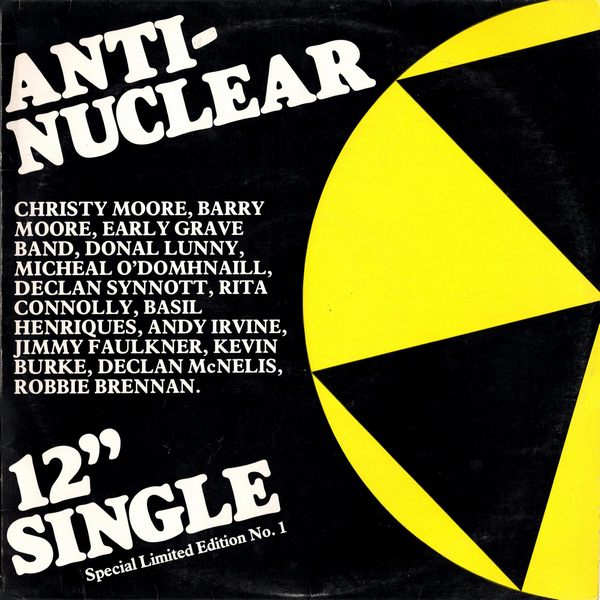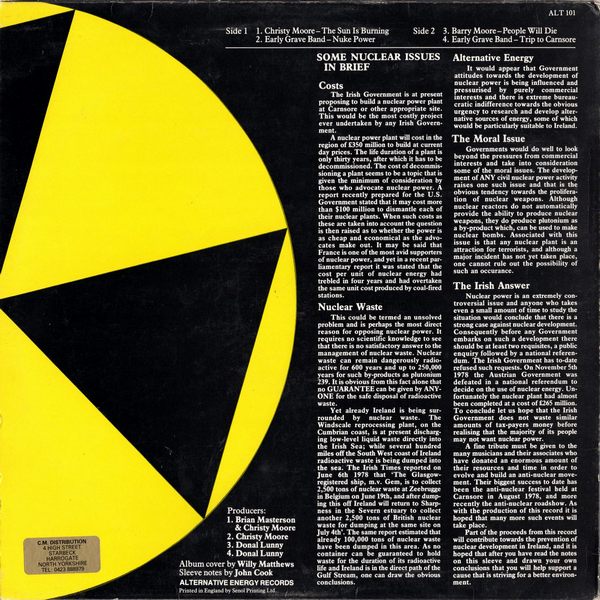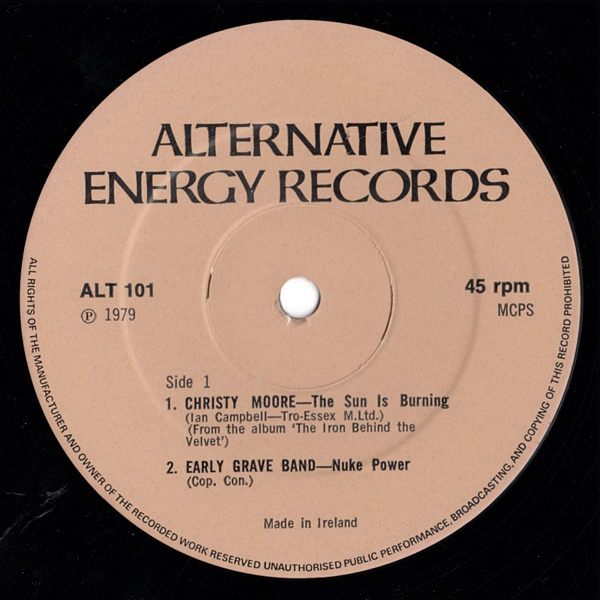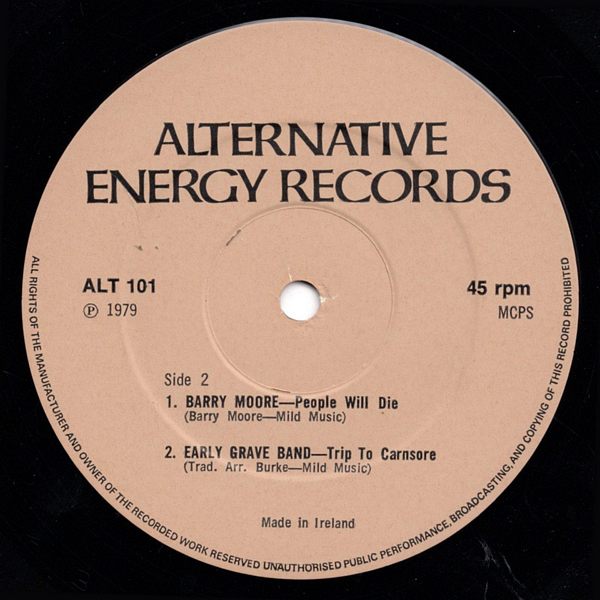

 |


 |
Sleeve Notes
SOME NUCLEAR ISSUES IN BRIEF
Costs
The Irish Government is at present proposing to build a nuclear power plant at Carnsore or other appropriate site. This would be the most costly project ever undertaken by any Irish Government.
A nuclear power plant will cost in the region of £350 million to build at current day prices. The life duration of a plant is only thirty years, after which it has to be decommissioned. The cost of decommissioning a plant seems to be a topic that is given the minimum of consideration by those who advocate nuclear power. A report recently prepared for the U.S. Government stated that it may cost more than $100 million to dismantle each of their nuclear plants. When such costs as these are taken into account the question is then raised as to whether the power is as cheap and economical as the advocates make out. It may be said that France is one of the most avid supporters of nuclear power, and yet in a recent parliamentary report it was stated that the cost per unit of nuclear energy had trebled in four years and had overtaken the same unit cost produced by coal-fired stations.
Nuclear Waste
This could be termed an unsolved problem and is perhaps the most direct reason for opposing nuclear power. It requires no scientific knowledge to see that there is no satisfactory answer to the management of nuclear waste. Nuclear waste can remain dangerously radioactive for 600 years and up to 250,000 years for such by-products as plutonium 239. It is obvious from this fact alone that no GUARANTEE can be given by ANYONE for the safe disposal of radioactive waste.
Yet already Ireland is being surrounded by nuclear waste. The Windscale reprocessing plant, on the Cumbrian coast, is at present discharging low-level liquid waste directly into the Irish Sea; while several hundred miles off the South West coast of Ireland radioactive waste is being dumped into the sea. The Irish Times reported on June 6th 1978 that 'The Glasgow-registered ship, m.v. Gem, is to collect 2,500 tons of nuclear waste at Zeebrugge in Belgium on June 19th, and after dumping this off Ireland will return to Sharpness in the Severn estuary to collect another 2,500 tons of British nuclear waste for dumping at the same site on July 4th'. The same report estimated that already 100,000 tons of nuclear waste have been dumped in this area. As no container can be guaranteed to hold waste for the duration of its radioactive life and Ireland is in the direct path of the Gulf Stream, one can draw the obvious conclusions.
Alternative Energy
It would appear that Government attitudes towards the development of nuclear power is being influenced and pressurised by purely commercial interests and there is extreme bureaucratic indifference towards the obvious urgency to research and develop alternative sources of energy, some of which would be particularly suitable to Ireland.
The Moral Issue
Governments would do well to look beyond the pressures from commercial interests and take into consideration some of the moral issues. The development of ANY civil nuclear power activity raises one such issue and that is the obvious tendency towards the proliferation of nuclear weapons. Although nuclear reactors do not automatically provide the ability to produce nuclear weapons, they do produce plutonium as a by-product which, can be used to make nuclear bombs. Associated with thissue is that any nuclear plant is an attraction for terrorists, and although a major incident has not yet taken place, one cannot rule out the possibility of such an occurance.
The Irish Answer
Nuclear power is an extremely controversial issue and anyone who takes even a small amount of time to study the situation would conclude that there is a strong case against nuclear development. Consequently before any Government embarks on such a development there should be at least two requisites, a public enquiry followed by a national referendum. The Irish Government has to-date refused such requests. On November 5th 1978 the Austrian Government was defeated in a national referendum to decide on the use of nuclear energy. Unfortunately the nuclear plant had almost been completed at a cost of £265 million. To conclude let us hope that the Irish Government does not waste similar amounts of tax-payers money before realising that the majority of its people may not want nuclear power.
A fine tribute must be given to the many musicians and their associates who have donated an enormous amount of their resources and time in order to evolve and build an anti-nuclear movement. Their biggest success to date has been the anti-nuclear festival held at Carnsore in August 1978, and more recently the anti-nuclear roadshow. As with the production of this record it is hoped that many more such events will take place.
Part of the proceeds from this record will contribute towards the prevention of nuclear development in Ireland, and it is hoped that after you have read the notes on this sleeve and drawn your own conclusions that you will help support a cause that is striving for a better environment.